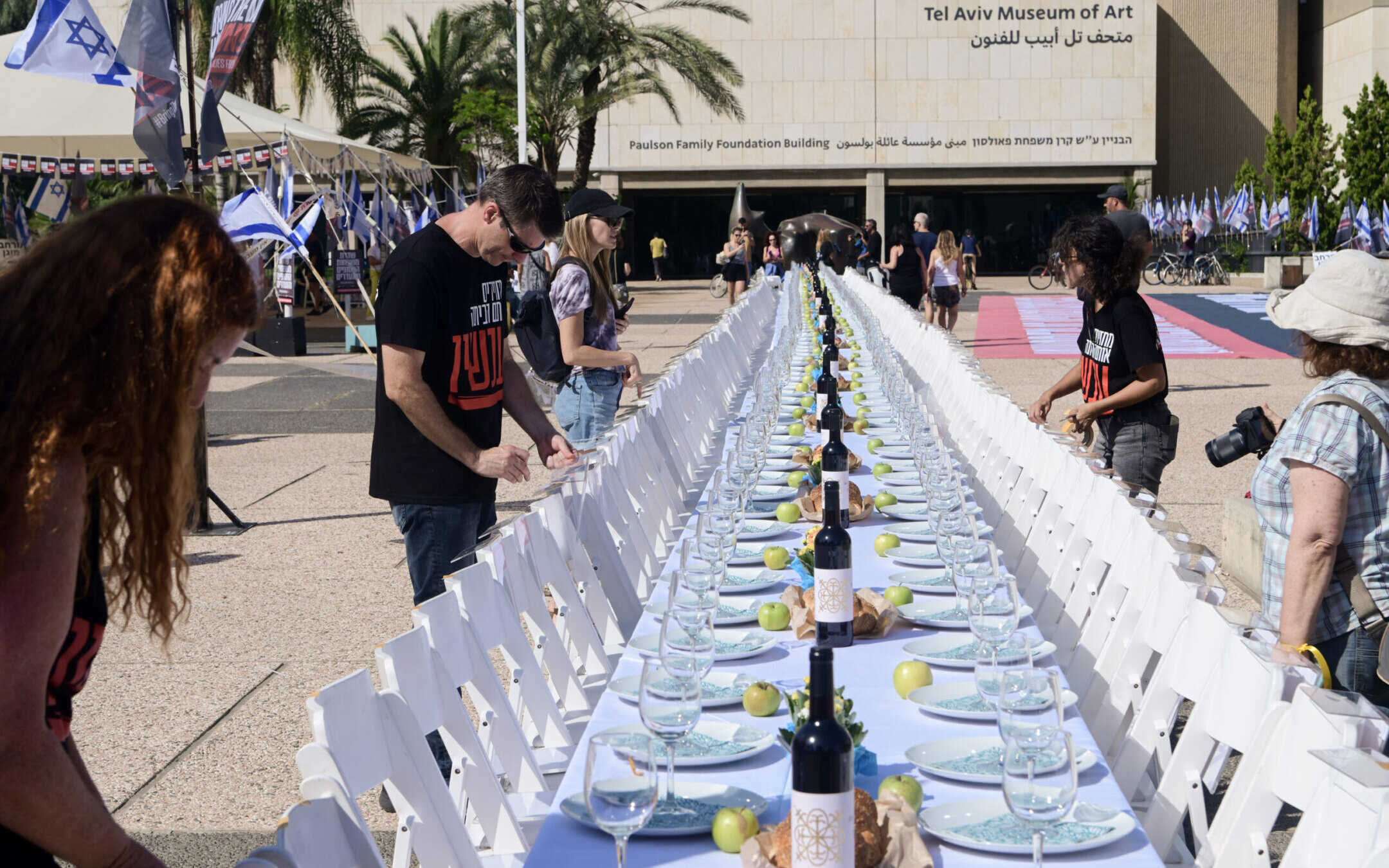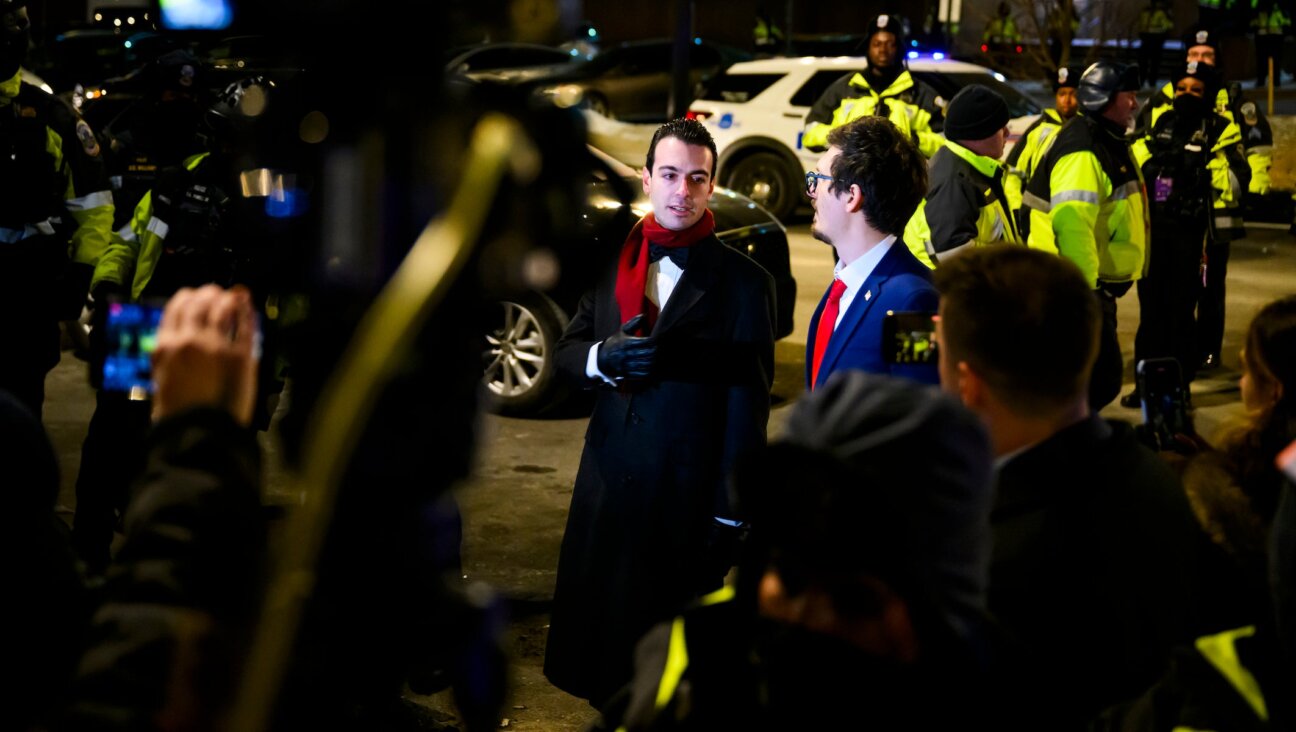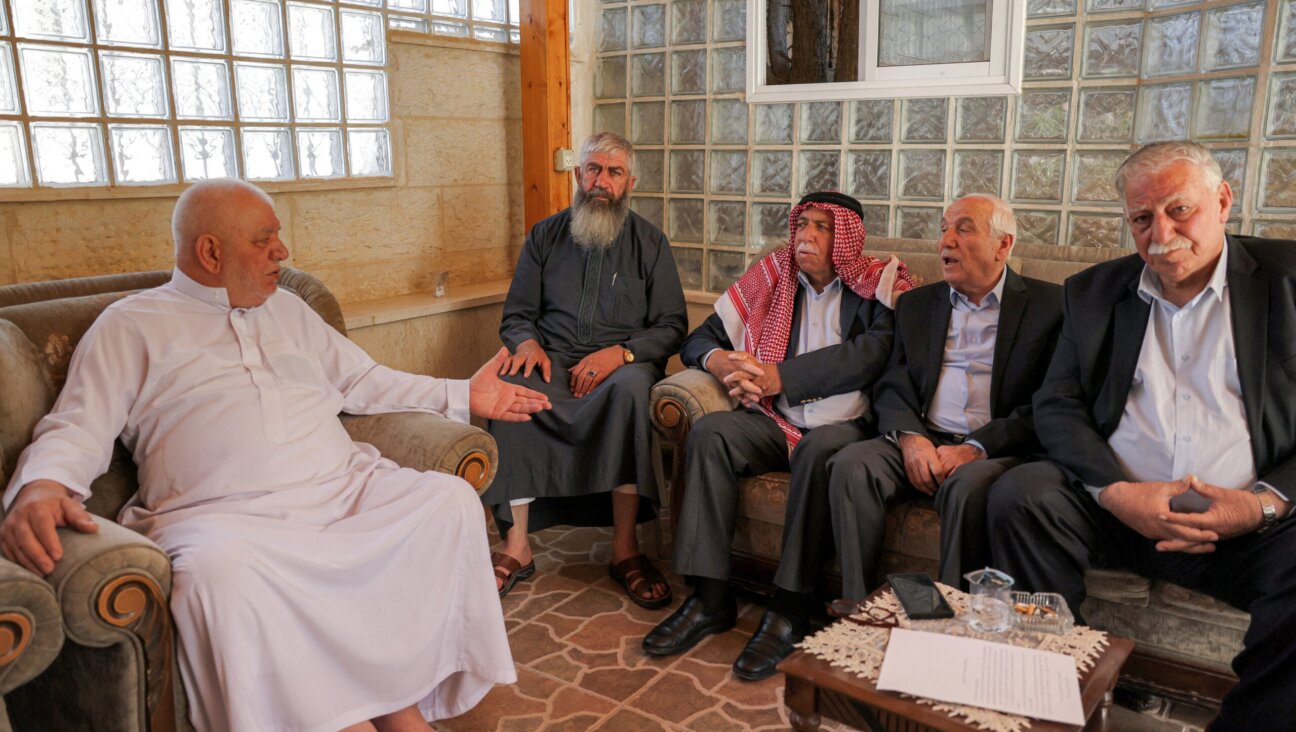In Tel Aviv and beyond, 200-seat empty Shabbat tables are set for Israeli hostages
Empty Shabbat tables have also gone up in the Jewish Quarter of Rome and on Australia’s Bondi Beach

Familiies of Israelis held hostage by Hamas militants in Gaza set a symbolic shabbat table with more than 200 empty seats for the histages, at “Hostage Square”, outside the Art Museum of Tel Aviv, October 20, 2023. Photo by Avshalom Sassoni/Flash90 *** Local Caption *** מלחמה חטופים משפחות תל אביב כיכר החטופים ברחבת מוזיאון ת”א שולחן השבת. לחטופים
(JTA) — The installation stretches across the entire plaza outside the Tel Aviv Museum of Art — a table for 200, pristinely set for Shabbat yet searingly empty.
The high chairs at a handful of seats, the children’s cups in other settings and the white roses alongside some of the plates make the symbolism painfully clear: This table is for the 200 hostages that Israel says Hamas is holding in Gaza.
Hamas took the hostages on Oct. 7, when it attacked Israel, killing and wounding thousands of people. Since then, their families and supporters have quickly snapped into an organized protest movement, applying tactic after tactic to keep the world’s attention on their loved ones despite Israel’s war in Gaza and a global fight over how it should respond to the massacre.
Among the most prominent and widespread tactic has been the distribution of “Kidnapped” posters all around the world, in dozens of languages, showcasing the faces and stories of each of the known captives. Now, the empty Shabbat table is poised to join those posters as a symbol of the captives’ plight.
Setting an empty seat for prisoners has been part of the global Jewish protest lexicon since the 1960s, when the movement to free Soviet Jews made it a hallmark of its symbolism. Earlier this year, some Jews committed to leaving an empty seat at their Passover seders for Evan Gershkovich, a Jewish-American journalist imprisoned in Russia.
The tables for the hostages are vastly larger in scope. In addition to the Tel Aviv table, tables for hostages were set up in advance of Shabbat in the Jewish Quarter of Rome and on Australia’s famous Bondi Beach.
This article originally appeared on JTA.org.






















